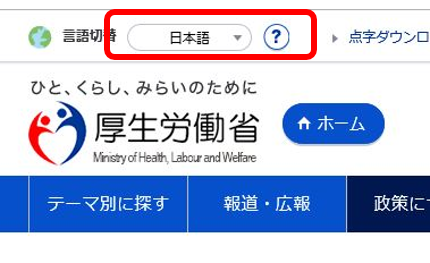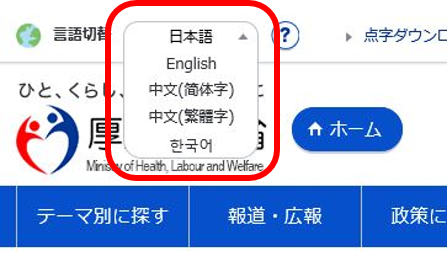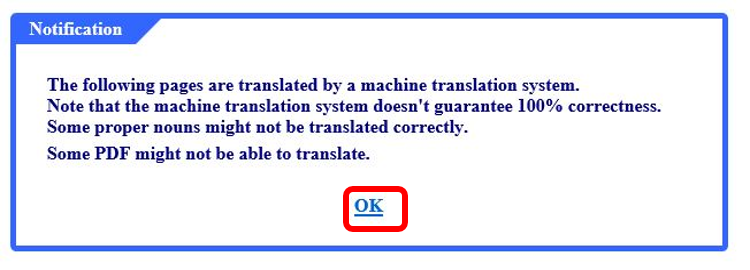参照元URL : https://www.mhlw.go.jp/stf/seisakunitsuite/bunya/kenkou_iryou/dengue_fever_qa_00014.html
Q & A on 2019 Novel Coronavirus (2019-nCoV
As of 02:00, Feb. 14
1.Information for the Public
1 Information for all
Q1: Are there any human to human transmission of 2019 Novel Coronavirus (2019-nCOV)?
Q2: How long is the average incubation period? (Is the coronavirus transmitted to others during that period?)
Q3: Can the 2019 Novel Coronavirus (2019-nCOV) be transmitted from a person who presents no symptoms?
Q4: How does human to human transmission of the novel coronavirus (2019-nCOV) happen?
Q5: How can I avoid catching or spreading the coronavirus? What should I do if I feel sick?
Q6: What is the “cough etiquette”?
Q7: When should I wear a facemask?
Q8: What does “close contact with infected persons” generally mean?
Q9: If I feel sick, what should I do? How should I seek medical evaluation and treatment?
Q10: Is there a cure?
Q11: Who is prone to develop severe conditions?
Q12: How can I read the Ministry’s website in English / Chinese / Korean?
2 Information for pregnant women and parents with children
Q1: How 2019-nCoV infection in pregnancy affect the fetus?
3 Information for the elderly and their families
Q1: Does 2019-nCoV infect only elderly people?
2.Information about confirmed cases and government measures to contain the spread of the new coronavirus
Q1: The number of confirmed cases and deaths (in and outside the country)
Q2: What border control measures is the government taking?
Q3: What is the government doing to prevent 2019-nCoV from spreading further within the country?
1.Information for the Public
1 Information for all
Q1: Are there any human to human transmission of 2019 Novel Coronavirus (2019-nCOV)?
Human to human transmission cases have been reported, but an outbreak has not been confirmed in Japan yet.
We recommend daily preventive actions, the same measures as you take to protect yourself from common cold or flu, including:
- Cover your mouth and nose when coughing and sneezing with a tissue, a handkerchief or the edge of a sleeve, but not with your hands.
- Wash your hands frequently and thoroughly with soap and running water.
Q2: How long is the average incubation period? (Is the coronavirus transmitted to others during that period?)
According to the World Health Organization, the incubation period of 2019-nCOV ranges from 1 to 12.5 days with median estimates of 5-6 days. It also recommends 14 days of follow-up observation for confirmed cases based on information from other coronavirus diseases.
https://www.who.int/news-room/q-a-detail/q-a-coronaviruses
More information on the coronavirus is available on the National Institute of Infectious Diseases website: https://www.niid.go.jp/niid/ja/kansennohanashi/9303-coronavirus.html
Q3: Can the 2019 Novel Coronavirus (2019-nCOV) be transmitted from a person who presents no symptoms?
Although the possibility of transmission from an asymptomatic person has been reported (https://www.nejm.org/doi/full/10.1056/NEJMc2001468), little is known on how Coronavirus disease 2019 (COVID-19) spreads from person to person.
Generally speaking, with most respiratory viruses, people are thought to be most contagious when they are most symptomatic. https://www.cdc.gov/coronavirus/2019-ncov/about/transmission.html
Q4: How does human to human transmission of the novel coronavirus (2019-nCOV) happen?
For now, available evidence suggests transmission of 2019-nCOV occurs mostly via droplets which might be inhaled or touched by others.
-Infection by inhaling droplets occurs when an infected person coughs or sneezes. The virus within droplets is carried over a short distance and these droplets can be inhaled through mouths or noses of people around the infected person. Crowded places such as schools, theaters and packed trains can be the scene of such transmission.
-Infection by contact occurs when an infected person covers coughs or sneezes with their hands and touches objects around them with those hands. The virus within droplets may stuck on the surface and others can be infected by touching their mouths, noses, or possibly, eyes, after touching the surface that has the virus on it. Possible channels of such transmission include hand straps of trains and buses, doorknobs, switches and buttons.
Q5: How can I avoid catching or spreading the coronavirus? What should I do if I feel sick?
First of all, we advise you to wash your hands with soap and water frequently, or use alcohol-based hand sanitizer gel when soap and water are not available. When you have symptoms such as coughs and sneezes, please cover your mouth and nose properly (called “cough etiquette”, explained below). If you cover coughs and sneezes with your hands and touches objects around you with those hands, there is a chance of spreading virus via those objects. Properly covering coughs and sneezes is particularly important when you are in crowded places such as schools, offices and packed trains.
Seniors and persons with chronic diseases are advised to take extra precaution and avoid visiting packed places and using public transportation as much as possible.
If you have been to China’s Hubei province or Zheijiang province in the 14 days before your symptoms started, or have had a contact with people who have been to those provinces, and feel sick with fever, cough, or other symptoms, please make a phone call to a nearby Public Health Center before you visit a doctor’s office or emergency room. It is also important that you tell medical practitioners, in advance, about your recent travel to those provinces or the contact with people who have been to those provinces.
Q6: What is the “cough etiquette”?
It refers to the way you cover your mouth and nose with a tissue, handkerchief, or the edge of a sleeve to avoid spreading germs to other people. An illustrated description is available on the website:
 https://www.mhlw.go.jp/stf/seisakunitsuite/bunya/0000187997.html
https://www.mhlw.go.jp/stf/seisakunitsuite/bunya/0000187997.html
Q7: When should I wear a facemask?
If you have symptoms such as coughing and sneezing, wearing a facemask is proved to be highly effective in catching the droplets, and therefore might help prevent the spread of viruses.
The effectiveness of wearing a facemask to protect yourself from contracting viruses is thought to be very limited. If you wear a facemask in confined, badly ventilated spaces, it might help avoid catching droplets emitted from others but if you are in an open-air environment, the use of facemask is not very efficient.
Q8: What does “close contact with infected persons” generally mean?
Generally speaking, it means:
- Touching an infected person directly, without anti-infective measures
- Meeting an infected person at a distance of around 2 meters (6 feet) or less
Latest information on the novel coronavirus disease (COVID-19) is available on the website of the National Institute of Infectious Diseases. https://www.niid.go.jp/niid/ja/diseases/ka/corona-virus/2019-ncov.html
Q9: If I feel sick, what should I do? How should I seek medical evaluation and treatment?
If you have not traveled to China’s Hubei or Zheijiang Provinces in the 14 days before your symptoms started and have had no close contact with anyone who have travelled to those provinces, please visit nearby clinics.
If you have been to Hubei or Zheijiang Provinces in the 14 days before your symptoms started or have had a contact with people who have been to those provinces, please make a phone call to the “consultation center for the people with potential 2019-nCOV exposure” (see the website below). The center will ask you about the details of your symptoms and the situation in which you may have been exposed to the coronavirus in order to make appropriate arrangements. When necessary, the center will arrange medical consultation and treatment at an outpatient service designated for patients with potential 2019-nCOV exposure.
Information on the consultation centers across Japan is available on:
 https://www.mhlw.go.jp/stf/seisakunitsuite/bunya/kenkou_iryou/covid19-kikokusyasessyokusya.html
https://www.mhlw.go.jp/stf/seisakunitsuite/bunya/kenkou_iryou/covid19-kikokusyasessyokusya.html
Q10: Is there a cure?
Currently there is no specific antiviral treatment for COVID-19. People with COVID-19 receive supportive care to help relieve symptoms.
For more information, please see the website of the National Institute of Infectious Disease.
https://www.niid.go.jp/niid/ja/diseases/ka/corona-virus/2019-ncov.html
Q11: Who is prone to develop severe conditions?
Currently, only limited information is available. The risk is thought to be higher for the elderly and people with chronic medical conditions, as is the case with other types of pneumonia. A report says that approximately one-third to one-half of reported patients had underlying medical comorbidities, including diabetes, hypertension, and cardiovascular disease.
https://www.cdc.gov/coronavirus/2019-ncov/hcp/clinical-guidance-management-patients.html
It is advisable for senior citizens and patients with chronic diseases to take extra precautions, such as avoiding public transportation and crowded places, in addition to daily precautionary measures.
Q12: How can I read the Ministry’s website in English / Chinese / Korean?
When you visit the Ministry’s website, please find the language button placed at the top left. Currently, machine translation system for English, Chinese and Korean is available.


Choose the language then, the notification below will be shown. Click the OK button and wait for a while. 
2 Information for pregnant women and parents with children
Q1: How 2019-nCoV infection in pregnancy affect the fetus?
If you are pregnant and diagnosed with pneumonia, your symptoms could become more severe than those before you got pregnant. However, such cases have not been confirmed among pregnant women infected with 2019-nCoV even in Hubei Province in China where the largest number of infection cases have been reported. It is not clear how infection in pregnancy will affect the fetus. But again, there are no confirmed cases of the virus causing problems to the fetus. For more information, please look at the following website. Japan society for Infectious Disease in Obstetrics and Gynecology: Coronavirus infection and pregnancy
http://jsidog.kenkyuukai.jp/images/sys/information/20200201155227-66A49FBE3B90CE319651ABC66E65F1ADFF370A715A4303B08CE9E2607157F16D.pdf#search=%27%E3%82%B3%E3%83%AD%E3%83%8A%E3%82%A6%E3%82%A4%E3%83%AB%E3%82%B9+%E5%A6%8A%E5%A9%A6%27
3 Information for the elderly and their families
Q1: Does 2019-nCoV infect only elderly people?
The virus can infect almost anyone regardless of age. However, the elderly and those with chronic diseases are more likely to contract the virus just as they are vulnerable to typical pneumonia. The WHO suggests that people in all ages wash their hands frequently and cover their mouth and nose with a flexed elbow or tissue when sneezing or coughing to protect themselves from the virus.
2.Information about confirmed cases and government measures to contain the spread of the new coronavirus
Q1: The number of confirmed cases and deaths (in and outside the country)
Please look at the following websites for the latest information: Homepage of the Cabinet Secretariat: Government Response to 2019 Novel Coronavirus (2019-nCoV)
https://www.cas.go.jp/jp/influenza/novel_coronavirus.html
Q2: What border control measures is the government taking?
Coronavirus disease 2019 (COVID-19) is designated as an infectious disease under the quarantine law (cabinet order in article 2-3). Therefore, those who are suspected of contracted the virus are required to be screened at quarantine stations at seaports and airports. The measures taken under the law includes inquiries by quarantine station staff, medical examinations by doctor, necessary testing and disinfection of sites where the virus is detected on ship or airplane. As the coronavirus infection spreads across China, Japan takes the following steps to prevent secondary infection within the country: ask all passengers arriving in Japan from China by ship or airplane to answer questionnaires, display or distribute awareness posters to encourage those passengers to self-report corona virus symptoms and hand out heath-check cards.
Quarantine station FORTH:https://www.forth.go.jp/topics/fragment1.html
Q3: What is the government doing to prevent 2019-nCoV from spreading further within the country?
Based on the Act on the Prevention of Infectious Diseases and Medical Care for Patients with Infectious Diseases (the Infectious Diseases Control Law), the Ministry of Health, Labour and Welfare classifies 2019-nCoV infection as a designated infectious disease. This means that the government will use public funds to cover the medical treatment of those forced to be hospitalized and other medical expenses for those infected with the virus. The Japanese government is also working to develop measures to contain the spread of the virus and stepping up efforts to enhance the ability of medical facilities that accept coronavirus patients and better deal with those patients. Detailed information on the government response are updated on the website of the Ministry of Health, Labour and Welfare, the quarantine station website designed exclusively for oversea travellers (https://www.mhlw.go.jp/stf/seisakunitsuite/bunya/0000164708_00001.html) and on twitter (https://twitter.com/mhlwitter).
